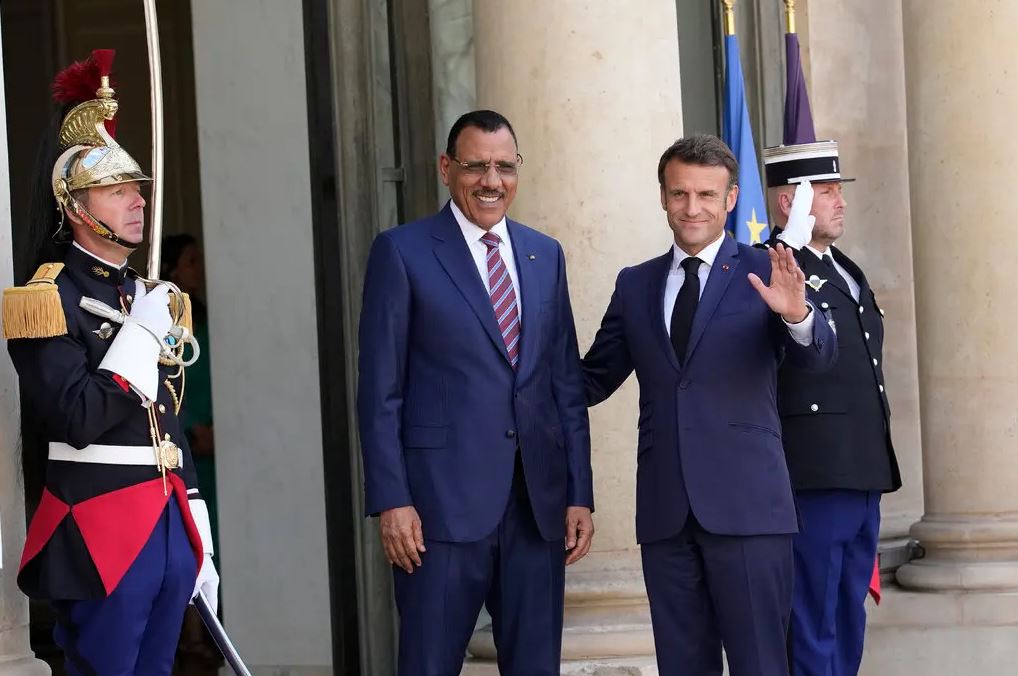If the democratically elected president of Niger is not reinstated to office within the next seven days, the leaders of West Africa have threatened to take military action against Niger, where troops staged a coup on Wednesday and have taken control of the government.
Following a crisis conference that took place in Nigeria, the Economic Community of West African States, often known as ECOWAS, made the demand. ECOWAS is comprised of 15 member states. It was an echo of previous comments made by the United States and France, who are important security friends of Niger. They had threatened that they would suspend funding and military ties worth hundreds of millions of dollars unless the ousted leader, Mohamed Bazoum, was reinstalled in power.
Emmanuel Macron, the president of Niger, issued a strongly worded warning after supporters of the recent coup gathered on Sunday in front of the French Embassy in the capital city of Niamey, where they burned French flags and demanded that French soldiers be withdrawn. According to a statement issued by Mr. Macron, France would respond with a “immediate and uncompromising” response to any assault on French individuals or interests in Niger.
The Economic Community of West African States (ECOWAS) issued a statement in which it threatened to take “all measures necessary” to restore democratic government in Niger. The organisation also said that this “may include the use of force.” The putschists, who were commanded by the new self-declared commander, General Abdourahmane Tchiani, were subjected to financial sanctions as a result.
The new junta, on the other hand, declared that they were not going anywhere. In a statement released before to the conference, it issued a stern warning against any kind of military action by a foreign nation.
The junta also faced resistance at home, as hundreds of people gathered in towns around the country to show their support for Mr. Bazoum during demonstrations.
The meeting, competing demonstrations, and conflicting comments all contributed to a rising feeling of crisis in Niger, which is a large and relatively poor nation. The coup took many people by surprise, including western governments, which are now attempting to orchestrate its overthrow.
The experts agree that undoing the effects of a coup after a few days have gone is a very difficult task. However, the requests are a sign of the frightened reaction to the turbulence in a nation that is viewed by the West as a critical partner in a region where Islamist terrorists are strengthening their hold on the area.
In Niger, which France governed as a colony until 1960, there are around 1,500 French forces and approximately 1,100 American troops. The majority of the American personnel are stationed at drone bases, which are used to carry out attacks against extremists in Niger and neighbouring countries.
France and the European Union halted some funding to Niger on Saturday, and the secretary of state of the United States, Antony J. Blinken, indicated that American security ties, which have been valued around $500 million since 2012, are also in peril.
Russia continued to be a shadowy presence in the area, as it has been for some time now.
On Sunday, supporters of the coup in Niamey hoisted Russian flags and hanged one on the wall of the French Embassy. This action was reminiscent of similar images that occurred in Burkina Faso and Mali in 2021 and 2022, when individuals celebrating coups were also seen waving Russian flags.
There is no proof, according to the opinions of experts, that Russia was behind the coup in Niger; instead, personal issues are regarded to be the more likely cause. Relations between Mr. Bazoum and General Tchiani, who was in charge of the Presidential Guard, had been slowly deteriorating for some time.
However, analysts believe that this is just another indication of how Russia has positioned itself as the symbol of anti-Western feeling, particularly anti-French sentiment, across large portions of Africa. And this allows the Kremlin to generate new opportunities for itself.
In the neighbouring country of Mali, around 5,000 French soldiers left last year and have been replaced by approximately 1,000 personnel of the Wagner private military firm of Russia. Wagner has also a significant presence in the Central African Republic, where it provides security for President Faustin-Archange Touadéra. Touadéra staged a vote on Sunday with the intention of extending his current term in office. Wagner is present in both countries.
As a result of the coup in Niger, an unbroken chain of nations running across the continent of Africa, from the Atlantic to the Red Sea, is now under the authority of the military. A visceral fury at what is believed to be French paternalism and post-colonial intervention has strengthened sympathy for the putschists in several of the countries that were once colonised by France.
Traditional regional blocs are being strained as a result of the coups, such as ECOWAS, which in recent years has banned three of its nations — Burkina Faso, Guinea, and Mali — over military takeovers, with Niger perhaps following suit in the near future.
In recent decades, the Economic Community of West African States (ECOWAS) has sent troops to a number of nations that have been plagued by turmoil, notably Liberia and Guinea-Bissau. According to Idayat Hassan, a Nigerian expert, the Nigerian government, despite its stern words on Sunday, may need to find a middle route in order to manoeuvre its way out of the issue in Niger.

